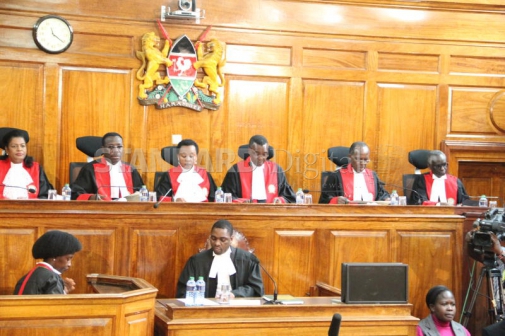×
The Standard e-Paper
Stay Informed, Even Offline

Kenya is now preparing for another grueling presidential election in 60 days after the Supreme Court annulled President Uhuru Kenyatta re-election, citing massive irregularities and non-compliance with the Constitution.
In a majority decision of four against two, the judges set a precedence, being the first time a court was invalidating the election of a president in Africa, and in the process gave National Super Alliance (NASA) leader Raila Odinga another chance to battle it out for the presidency.